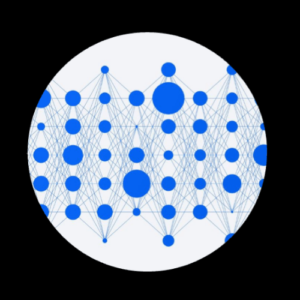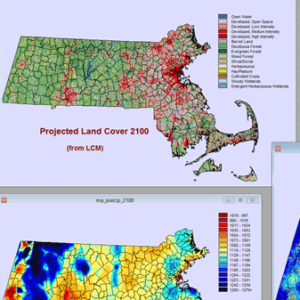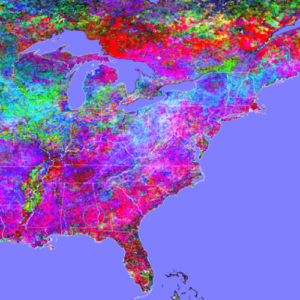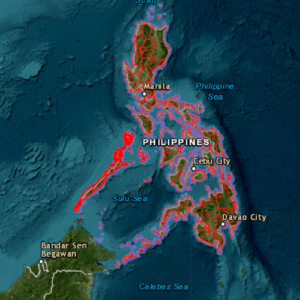Skip to content
 Prithvi Foundation Model (Collaboration with NASA and IBM) - In this project, we showcase the application of Prithvi Foundation Model in segmentation, image classification, and gap filling. Trained on approximately 175,000 multi-spectral and multi-temporal image chips from Harmonized Landsat Sentinel-2 (HLS) imagery across the Contiguous United States, Prithvi FM demonstrates exceptional performance, achieving results similar to or better than the baseline models with a significantly smaller sample size.
Prithvi Foundation Model (Collaboration with NASA and IBM) - In this project, we showcase the application of Prithvi Foundation Model in segmentation, image classification, and gap filling. Trained on approximately 175,000 multi-spectral and multi-temporal image chips from Harmonized Landsat Sentinel-2 (HLS) imagery across the Contiguous United States, Prithvi FM demonstrates exceptional performance, achieving results similar to or better than the baseline models with a significantly smaller sample size. Risk Mapping for REDD (Collaboration with Verra and TerraCarbon) - Since 2022, Clark Labs, in partnership with TerraCarbon, has worked with Verra to develop a methodology for the predictive mapping of the risk of unplanned deforestation in tropical jurisdictions containing REDD projects. This has now been accepted as the VT0007 Unplanned Deforestation Allocation (UDef-A) tool. The methodology provides a benchmark modeling approach that establishes a spatially and quantitatively explicit mapping of expected future deforestation for jurisdictions that may contain multiple REDD projects. A jurisdiction is typically a country, or a state or province for large countries. The tool also provides the means for incorporating alternative empirical models and for their evaluation against the benchmark. Work continues with the development and testing of an open-source software implementation (UDef-ARP) and toolboxes for ArcGIS and QGIS.
Risk Mapping for REDD (Collaboration with Verra and TerraCarbon) - Since 2022, Clark Labs, in partnership with TerraCarbon, has worked with Verra to develop a methodology for the predictive mapping of the risk of unplanned deforestation in tropical jurisdictions containing REDD projects. This has now been accepted as the VT0007 Unplanned Deforestation Allocation (UDef-A) tool. The methodology provides a benchmark modeling approach that establishes a spatially and quantitatively explicit mapping of expected future deforestation for jurisdictions that may contain multiple REDD projects. A jurisdiction is typically a country, or a state or province for large countries. The tool also provides the means for incorporating alternative empirical models and for their evaluation against the benchmark. Work continues with the development and testing of an open-source software implementation (UDef-ARP) and toolboxes for ArcGIS and QGIS. TerrSet: Advancing Geospatial Technology for Sustainable Development - TerrSet is an integrated geospatial software suite designed to address the intricate challenges of monitoring and modeling the Earth system for sustainable development. Built upon the core of the IDRISI GIS and Image Processing System, TerrSet includes the Land Change Modeler, the Earth Trends Modeler, the Habitat and Biodiversity Modeler, the Climate Change Adaptation Modeler, the Ecosystem Servies Modeler and GEOSIRIS. The platform unifies GIS analysis and image processing tools alongside these six specialized applications, providing a comprehensive suite of features for scientific inquiry.
TerrSet: Advancing Geospatial Technology for Sustainable Development - TerrSet is an integrated geospatial software suite designed to address the intricate challenges of monitoring and modeling the Earth system for sustainable development. Built upon the core of the IDRISI GIS and Image Processing System, TerrSet includes the Land Change Modeler, the Earth Trends Modeler, the Habitat and Biodiversity Modeler, the Climate Change Adaptation Modeler, the Ecosystem Servies Modeler and GEOSIRIS. The platform unifies GIS analysis and image processing tools alongside these six specialized applications, providing a comprehensive suite of features for scientific inquiry.




